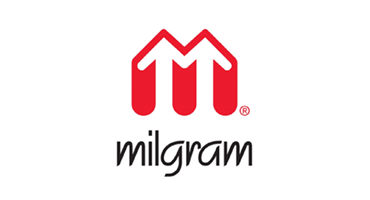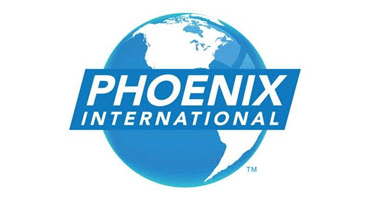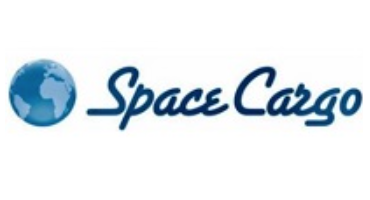
Less than Container Load (LCL) Shipping
Keep your freight moving on schedule. With our less than container load (LCL) services, you only pay for the space you use while efficiently delivering your freight.
- Access direct-to-door capabilities even when full container load (FCL) capacity is strained.
- Operate where you do business with strategic consolidation hubs in Asia, Europe, India, North America, South America, and Oceania.
- Avoid port congestion with expedited LCL freight service, sea-air combinations, and East and West Coast routing options in the United States.
Less than Container Load (LCL) Solutions and Schedule
Get your freight to its destination as planned with our customizable LCL freight shipping solutions. An economical alternative for less time-sensitive shipments, our consistent LCL sailing schedule provides reliable service.
Expedited LCL
Speed up your transit times without breaking your budget. Expedited LCL shipping is a perfect balance between traditional LCL and air freight. Add consistency and speed at competitive rates.
Explore expedited LCLOcean to Air Combination
Maximize your options with our seamless, multimodal set of global services. Pair ocean and air shipping into a single solution to deliver your freight on time, control inventory, and keep costs aligned.
FCL to LCL Mode Conversion
Keep your freight moving by converting from FCL to more flexible LCL service. Work with our experts to determine a data-driven conversion strategy for your goods.
Drayage
Add flexibility to your LCL shipments with robust drayage solutions. Bundle our drayage, intermodal, consolidation, and warehousing solutions—available across major water and inland rail ports.
Explore drayage servicesFull Container Load (FCL)
Move your FCL ocean freight reliably and cost-efficiently—we’ll help tailor the movement of your goods for maximum speed.
Explore FCL servicesCustoms Brokerage
Complement your LCL freight with our customs brokerage services. Work with our Trusted Advisor® experts to keep your goods moving quickly through LCL freight hubs around the world.
Explore customs brokerage servicesTrade Policy Consulting
Proactively solve potential compliance issues with help from skilled trade experts who understand the ever-changing import and export regulations.
Explore trade policy servicesMarine Cargo Insurance
Get all-risk cargo insurance coverage for your LCL shipments at affordable rates. Explore your policy choices—including no- or low-deductible policies—to ensure your coverage matches your exposure risk.
Explore insurance services
Only pay for the space you use
Create a customized LCL solution that helps speed up your transit times without breaking your budget.
Because you only pay for the space you use, LCL shipping can be a smart, economic alternative over other global shipping modes. Build LCL into your overarching shipping solution to keep freight on time, control inventory, and manage costs.

Testimonials

Connect your global supply chain with a single platform
Automate, optimize, and manage every aspect of the shipment lifecycle across multiple vendors with Navisphere®, our single, global, multimodal transportation management system. It’s a complete digital ecosystem that streamlines complexity and improves efficiency up and down your supply chain.
- Gain connectivity for every step of your shipment journey, from purchase order management and quoting to tracking and invoicing.
- Drive smarter solutions for your supply chain with an unmatched information advantage—you’ll have access to the most shipment, routing, and carrier data in the industry.
- Increase your speed and efficiency with capabilities in our system or in your own TMS or ERP—from bids to billing.
Frequently asked questions about expedited LCL service
Q: Is it cheaper to ship LCL or FCL?
The cost comparison between LCL and FCL shipping hinges on the nature of your cargo. Opting for LCL becomes the economical choice when shipping smaller items or palletized cargo. Conversely, if your goods occupy a substantial portion of a container, FCL emerges as the more cost-effective solution for your shipping needs.
Q: Which is better LCL or FCL?
Both LCL and FCL can be great shipping options. The choice between LCL and FCL ultimately boils down to the specifics of your shipment and any unique requirements you have. While LCL shines for smaller shipments, FCL can prove advantageous even when the container isn't fully loaded. Once your shipment surpasses a certain size threshold, an entire container may be the right choice as it can offer more space at a potentially faster transit time despite a slightly higher investment.
Q: What is the maximum cubic meter (CBM) for LCL shipments?
The limit for a single package is 3,000 kg. and 29 CBM.
The limit for an entire LCL booking is 20,000 kg. and 60 CBM.
Q: Can I add customs to my LCL shipment?
Yes. You can include both export and import customs clearances with your LCL bookings.
Q: How does LCL compare with air freight?
The choice between LCL and air freight hinges on the urgency of your shipment. While air freight offers speed, LCL becomes increasingly efficient as the size and weight of your cargo grow. Not only is airfreight cost-intensive, potentially costing several times more than LCL, but choosing LCL provides a viable alternative that reduces both your logistics expenses and carbon footprint. Rest assured, with LCL, your pickup, delivery, and visibility processes remain unchanged.
Q: How does C.H. Robinson pick up, ship, and deliver LCL freight?
With C.H. Robinson you can expect a simple process managed by dedicated people to coordinate every step of the journey.
- Pickup: C.H. Robinson picks up or receives the shipment at a C.H. Robinson container freight station (CFS) location before the cut-off time.
- Ship: The freight moves through the customs clearance process and is consolidated with other shipments into an LCL container.
- Delivery: Upon arrival at the destination port, your cargo is transferred to the CFS, where it is safely unloaded, cleared through customs, and delivered.
Q: How many destinations does C.H. Robinson serve for LCL freight?
On average, C.H. Robinson moves LCL shipments across more than 600 lanes and more than 10,000 point-to-point services each week. We are consistently expanding our operational capacity by incorporating new shipping lanes and sailings into our business model.
Q: Does LCL service help reduce carbon emissions?
Yes. Typically, LCL shipping can help reduce carbon emissions in two ways:
- Optimizing containers: LCL service optimally utilizes container space, reducing emissions per transported unit.
- Avoiding air freight: Choosing LCL over air freight minimizes carbon emissions by avoiding the high CO2 output associated with aircraft transportation.

Get the latest global freight forwarding and market insights
Stay up to date with market changes that impact air and ocean capacity at the trade lane level—everything you need to navigate global shipping.
Evolving our global freight services to meet your needs
Supply chains are growing in complexity and moving faster than ever. Due to the nature of our fast-paced industry, there is a continuous need for additional services. Over the years, we have remained committed to expanding our global network in exciting new ways—including strategic acquisitions—that align with your changing needs.





